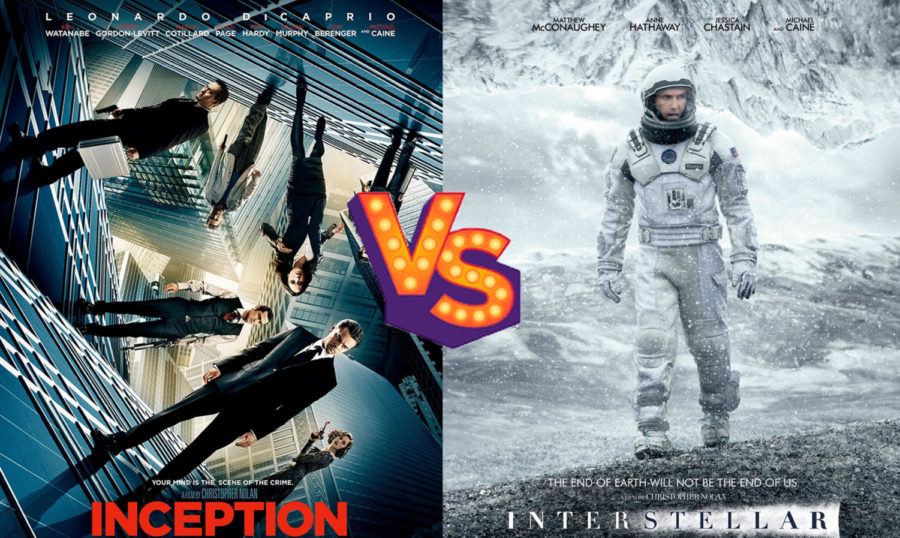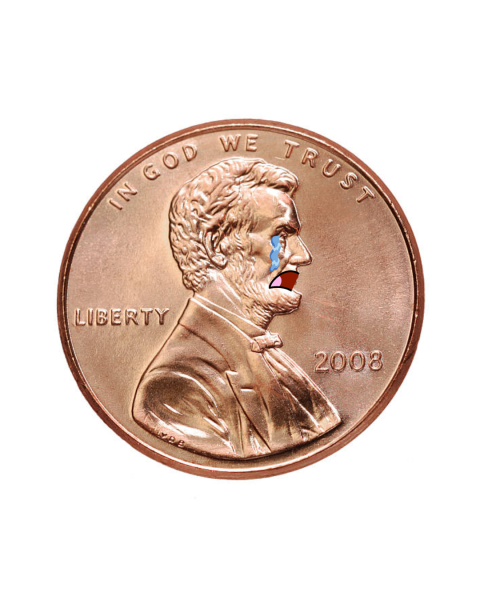Movie Monologues: Inception vs Interstellar
Analyzing two of Christopher Nolan’s top films
It would be an understatement to say that Christopher Nolan has a great influence on filmmaking. His usage of storytelling, action, and ability to develop fictional worlds proves that Nolan is one of the most influential directors of this generation. However, fans still debate which of Nolan’s films is better, Inception or Interstellar. To see, we must analyze a few elements of the film: the plot, casting, and impact.
Inception is the story of Dominic Cobb (Leonardo DiCaprio), an extractor who performs corporate espionage by entering their subconscious, creating dreams within dreams. This allows the subject to confuse dreams and reality, making them vulnerable to exposing private information. Cobb is offered by businessman Mr. Saito (Ken Watanabe) to incept the mind of the heir to the world’s top energy corporation, convincing him to disband the company, a task considered to be impossible. Cobb builds a team preparing to go into the dream while facing setbacks from the subject’s subconscious defense and Cobb’s dead wife, Mal, who haunts his subconscious and infiltrates his dreams. The group must complete the job, allowing Cobb to go home to his children while ensuring they don’t die, which will trap them in the dream.
Interstellar focuses on the story of Cooper (Matthew McConaughey), a former NASA pilot turned farmer due to a crop blight making the planet more inhabitable. Cooper’s daughter, Murph, has experienced some anomalies, that she believes are ghosts, which eventually leads them to a secret NASA base. Professor Brand (Michael Cain), the head of the base, offers Cooper a chance to save humanity and explore three potentially habitable planets where other scientists were previously sent to report on their condition. Cooper and a group go and visit the planets while fighting against time, resources, and the battle between returning to their families or saving humanity.
Both films are driven by the lead character’s desire to return to their family, however at different stakes. In Interstellar, the stakes are higher as Cooper is uncertain about the various planets’ habitability, the challenge of saving humanity, and when he can return to his children. Cooper is also venturing into territory he hasn’t experienced while Cobb is much more familiar with the dream world. For these reasons, Interstellar contains a better plot.
Next up is the cast, which for both films, is star studded. In Inception, the cast stars DiCaprio, Joseph Gorden-Levitt, Elliot Page, Cillian Murphy, Marion Cotillard, Tom Hardy, and Ken Watanabe. The film is led by DiCaprio’s extraordinary performance whose intensity and determination as Cobb is one of the best he’s had. The supporting cast also had great chemistry with Hardy and Gorden-Levitt playing major supporting roles. Their performances elevate the film while bringing humor to relieve tension from the film, making it more exciting to watch.
In Interstellar, the cast is also top-notch, led by McConaughey, and supported by Jessica Chastain, Anne Hathaway, Matt Damon, and [Michael] Cain. McConaughey’s performance as Cooper is awesome. He’s very personable and upbeat while having heartfelt moments that can and will bring you to tears. Damon also had a great performance as Dr. Mann, a once selfless leader who led the previous missions exploring potentially habitable planets, turned to a detached menace whose only goal is to survive. The rest of the supporting cast, however, felt a bit lackluster. Outside of Damon’s character, Hathaway and Chastain’s performances feel underwhelming. Even the iconic monologue from Brand, played by Hathaway, about love felt a bit dull and not as passionate as it was intended. Ultimately, I still think the performances from Interstellar were great, but compared to Inception, the supporting cast falls short.
The last aspect of these films is the impact it has, not just on the movie industry as a whole, but on Nolan’s discography. Understanding Nolan’s greatness, both films hold significant impacts. In Inception, the questioning of one’s reality is now a common concept seen in cinema. It set the stage for high-brow, complex sci-fi films like Looper (2012) and Arrival (2016). You can even see inspired visual parallels from the popular Dr. Strange series (2016, 2022). Interstellar, on the other hand, set an example of what space adventure films should be, inspiring films like The Martian (2015) and Ad Astra (2019). Despite this, it falls short of Inception, likely the most exciting sci-fi movie of its time since The Matrix (1999). The way Nolan immerses you in the journey where the audience begins to question their reality as well. The suspense throughout the film only heightens as they begin to go deeper and deeper into the unknown, and the payoff is worth it. Between the performances, storylines, and an ending that’s led to more conspiracy theories than flat-earthers, Nolan’s work on Inception contributes to one of the best sci-fi films in the last two decades.




